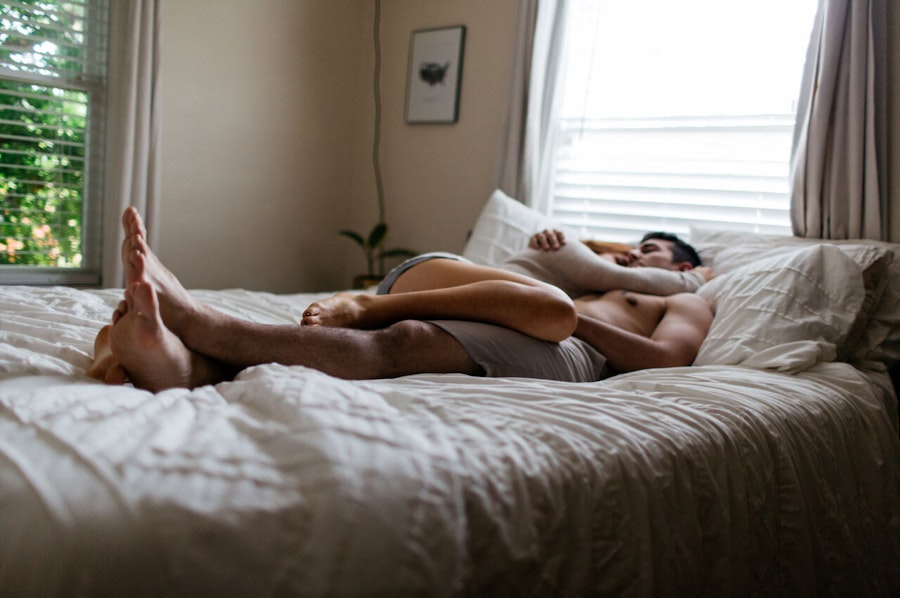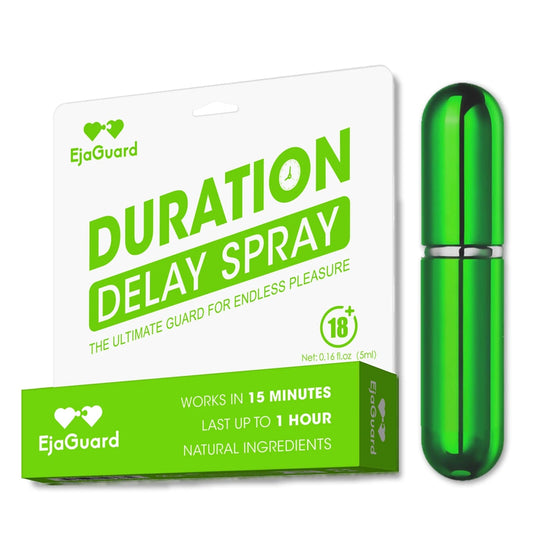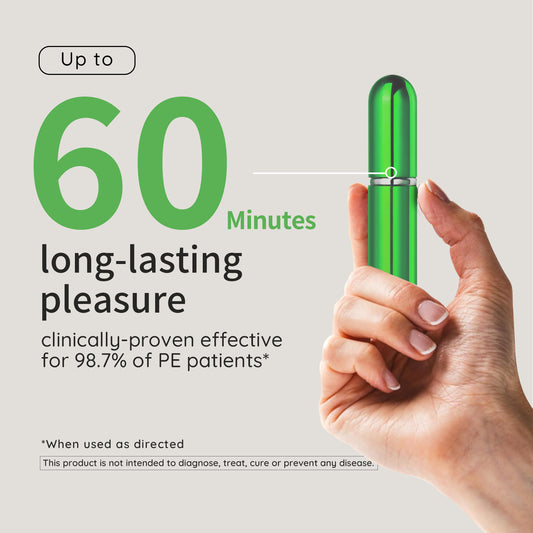Virginity Sex: What to Expect, How to Prepare, and Make It a Positive First Time
Introduction

Losing your virginity is a major milestone. Whether you're excited, nervous, or unsure, you're not alone. Virginity sex isn't just about the act—it's about readiness, safety, and emotional comfort.
This guide will help you understand what to expect, how to prepare, and how to make your first time sex experience healthy and positive.
If you’re exploring your readiness, our EjaGuard Blog offers insights on sexual wellness, while expert guidance from Planned Parenthood can help you make informed decisions.
What Is Virginity Sex?

Virginity sex typically refers to having sexual intercourse for the first time. For most, it's penile-vaginal penetration, but how one defines virginity can vary by culture and individual beliefs.
Some view virginity as a physical state, while others see it as emotional or symbolic. Regardless of how you define it, the first time should be about mutual consent, safety, and comfort.
For a deeper look into how virginity is perceived across cultures, this EjaGuard article on sexual myths pairs well with research from the American Psychological Association on evolving definitions.
Myths vs Truths About Losing Virginity
There’s a lot of misinformation surrounding virginity sex. Let’s debunk a few common myths:
-
Myth: You will bleed the first time.
Truth: Not everyone bleeds. Some people may not bleed at all. -
Myth: It will be painful.
Truth: If both partners are relaxed, use lube, and take it slow, pain is minimal or nonexistent. -
Myth: It must be perfect.
Truth: It’s okay if it’s awkward. The most important part is consent and communication.
Understanding these truths helps ease anxiety and build realistic expectations.
How to Prepare for First Time Sex (Physically + Mentally)

Physical Preparation
-
Practice hygiene. Take a shower and groom as you prefer.
-
Use protection. Condoms prevent STIs and pregnancy.
-
Have water-based lube ready. It eases discomfort.
Mental & Emotional Preparation
-
Ask yourself: Are you doing this because you want to?
-
Talk with your partner about boundaries, expectations, and consent.
-
Be patient with yourself. There’s no rush.
Tip: Don’t treat sex as a performance. It’s a shared experience.
Choosing the right condom type and pairing it with a water-based lubricant ensures safer, smoother intimacy.
First Time Sex: What to Expect
It’s normal to feel anxious. Virginity sex isn’t about being perfect. Expect some trial and error.
-
Physical Sensations: Pressure or stretching is common. Lube helps.
-
Emotions: You might feel nervous, happy, overwhelmed—or a mix.
-
Performance: Erections might come and go. Orgasms may or may not happen. That’s okay.
Take it slow. Focus on connection over climax. Using EjaGuard Delay Spray can help manage early ejaculation concerns, while Healthline’s first-time sex guide offers expert-backed reassurance.

First Time Sex Positions (Gentle & Comfortable)
Here are a few beginner-friendly sex positions:
-
Missionary (with a pillow under hips): Great for comfort and eye contact.
-
Spooning: Intimate, relaxed, and less pressure on the body.
-
Woman on top: Gives the receiving partner control over depth and speed.
These positions allow better communication and comfort. Remember, the goal is to feel connected and safe. If you’re experimenting with positions, pairing them with a premium lubricant can improve comfort, as supported by research from the Journal of Sexual Medicine.
Tips for a Healthy and Positive Experience

-
Communicate openly. Ask what feels good, check in often.
-
Use lube generously. It reduces friction.
-
Breathe deeply. Stay relaxed.
-
Keep protection nearby. Condoms and safe lubes are essential.
-
Don’t compare. Your experience is unique to you.
Virginity sex is not a race or competition. It’s about connection and learning.
Our EjaGuard orgasm gels can heighten pleasure for both partners, while resources like Scarleteen provide valuable, judgment-free sexual education.
Aftercare and Emotional Wellbeing
Aftercare isn’t just cuddling—it’s checking in emotionally and physically.
-
Talk about it. How do you feel? What did you like?
-
Hydrate and rest. Sex can be physically draining.
-
Use the restroom. Especially for women, this helps prevent UTIs.
Respect each other’s vulnerability. It's part of building intimacy. For emotional aftercare, read our EjaGuard intimacy and connection guide, and consult the American Sexual Health Association for expert post-sex wellness tips.
Product Support: Safe Lubricants & Delay Sprays

Your first time can be more comfortable with the right products:
-
Water-based lubricants: Safe, non-irritating, and perfect for beginners.
-
Delay sprays like EjaGuard: Helps those concerned with premature ejaculation.
EjaGuard’s delay spray offers a natural formula that supports confidence without numbing.
Always test products on a small area first to avoid irritation. Our water-based lubricants are dermatologist-tested for safety, and the EjaGuard Delay Spray is formulated to extend pleasure naturally, as also recommended by sexual health professionals like those at Cleveland Clinic.
Conclusion + CTA
Virginity sex is a personal experience—not a checklist item. Whether it’s loving, silly, awkward, or exciting, the key is being ready and respectful.
Take your time, communicate with your partner, and prepare with care. Looking to enhance your first-time comfort? Explore EjaGuard’s safe and natural solutions today.
FAQs
What is virginity sex?
Virginity sex refers to the first experience of sexual intercourse, usually penile-vaginal sex.
Does everyone bleed during their first time?
No. Not all people bleed. It varies based on individual anatomy and comfort.
How can I make my first time less painful?
Go slow, use lube, and focus on relaxation and communication.
Which sex positions are best for the first time?
Missionary, spooning, and woman-on-top positions offer comfort and control.
Should I use a condom the first time?
Yes. It protects against STIs and pregnancy.
Is it normal to feel nervous before virginity sex?
Absolutely. Nerves are normal. Talk with your partner and move at your pace.
 Buy Now
Buy Now



